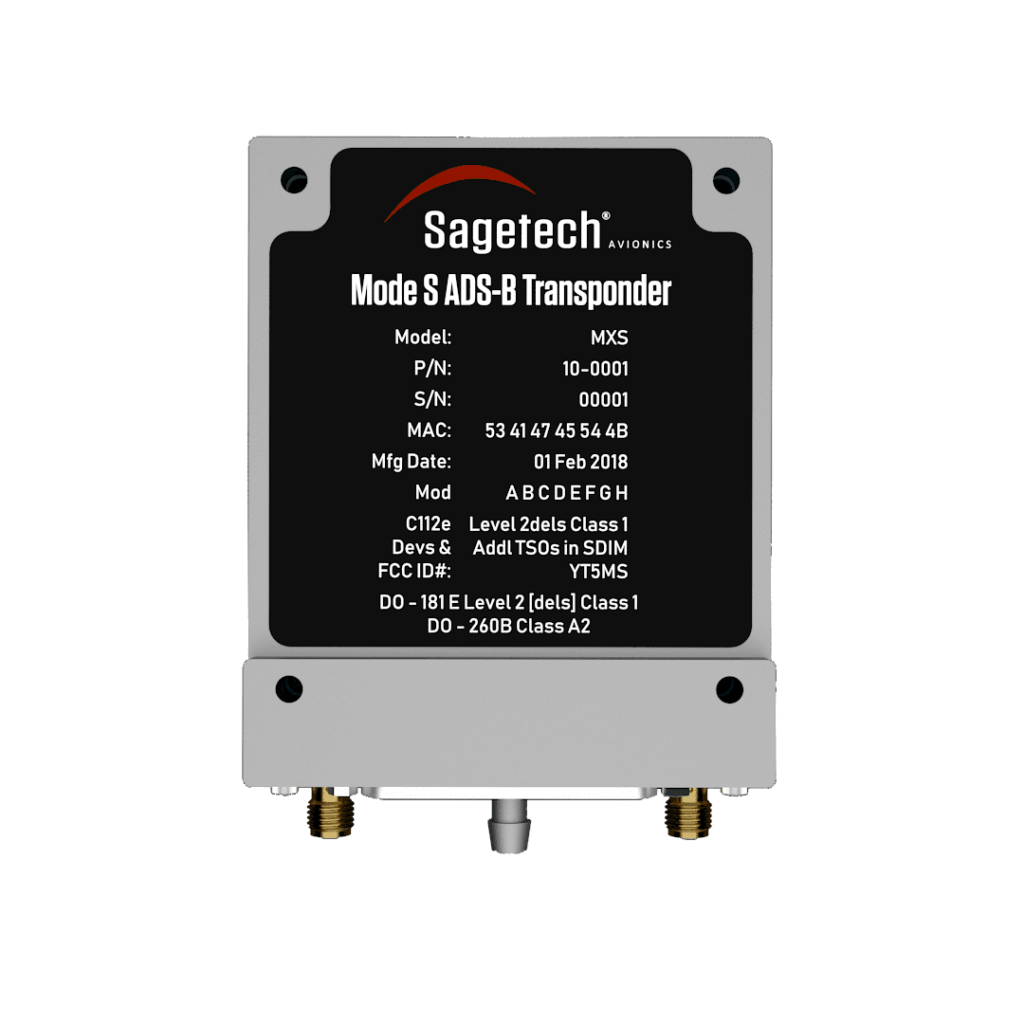Sagetech Avionics Sees Opportunities In Brazil For Micro-Transponder


Sagetech Avionics and Advanced Technologies Security & Defense, an unmanned aerial vehicle (UAV) company, have successfully completed the Brazilian equivalent of FCC approval by ANATEL, the Brazilian National Telecommunications Agency. (Photo: Sagetech)
US aerospace technology firm Sagetech Avionics said approval in Brazil for its micro-transponder, the MXS, will open new opportunities in the South American country and beyond.
Sagetech this month gained clearance from the Brazilian National Telecommunications Agency allowing the MXS to be installed on the Harpy drone produced by Brazilian unmanned aerial vehicle (UAV) manufacturer Advanced Technologies Security & Defense.
The approval clears the MXS to be imported to Brazil, so it could be installed on any aircraft produced in Brazil, home of Embraer.
Beyond the Harpy, which is now equipped with the MXS ADS-B in/out transponder, Advanced Technologies will serve as a reseller of the transponder in the Brazilian market. “Both companies are excited to bring robust, reliable and cutting-edge products to the Brazilian UAV marketplace and look forward to future collaborations with other UAV manufacturers,” the companies said in a joint statement.
In an interview with Avionics International, Sagetech CEO Tom Furey said Advanced Technologies will act “as our agent in Brazil,” adding: “They’ve chosen to not only put the MXS on their aircraft, but also to help others, if appropriate, in commercial aircraft or general aviation or another drone manufacturer to use our transponder because they can import it for use in Brazil.”
The Harpy is a 2-meter-long (6.5 feet) drone with a 4-meter (13 feet) wingspan and capable of a maximum speed of 150 km/hr (93 mph). Furey said the MXS is ideal for the Harpy. “This takes what would traditionally be a 3- to 10-pound transponder and shrinks it to a third of a pound,” he explained. “The power consumption is reduced dramatically to less than 15 watts maximum. And the space required for the MXS is a lot smaller. All of those things help … a small drone have this capability [to transmit its position] without sacrificing anything.”
As the skies get more crowded, it will be critical for as many aircraft as possible to be equipped with ADS-B in/out transponders, Furey noted. “It’s important for everyone to be able to have transponders on their aircraft where appropriate,” he said. “In terms of transmitting position, a transponder is one of the main ways that unmanned aircraft are going to work and play well with others in crowded airspace.”
Furey said Sagetech’s micro-transponder will also be a good fit in the emerging eVTOL sector. “An eVTOL is just another aircraft,” he explained. “eVTOLs take take off and land differently and have a different propulsion system, but they’re still an aircraft operating in shared airspace and very often will be carrying passengers or carrying a high payload weight. So, if you have battery power, anything in your aircraft that consumes power comes into question.”
Furey added: “Taking a normal transponder that might be used on an Airbus or a Boeing commercial airliner and put that in an eVTOL and you’ve got a multiplicative effect. A [more traditional] transponder might draw 40, 50 or 60 watts of power, where ours is typically operating in the 10 to 11 watt range. Secondly, [airliner transponders] are a lot bigger and heavier [than the MXS], which then causes more strain on the propulsion system. So, size, weight and power all matter. We continue to think that eVTOLs are a great market for the MXS.”
The post Sagetech Avionics Sees Opportunities In Brazil For Micro-Transponder appeared first on Avionics International.
—————
Boost Internet Speed–
Free Business Hosting–
Free Email Account–
Dropcatch–
Free Secure Email–
Secure Email–
Cheap VOIP Calls–
Free Hosting–
Boost Inflight Wifi–
Premium Domains–
Free Domains





